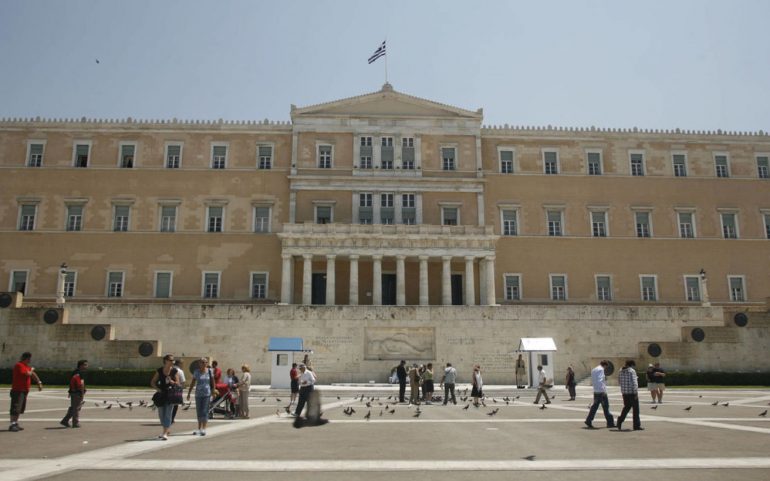If you stand in Syntagma Square and see its imposing Palace Greek Parliament you will find that it has 52 windows. Other times their shutters are open when there are employees in the offices and they want light to enter, and other times they do not. But there is a specific window that is permanently closed. To be precise, it has almost never been opened. Whenever you pass by the Unknown Soldier it will be sealed.
Because it never opens
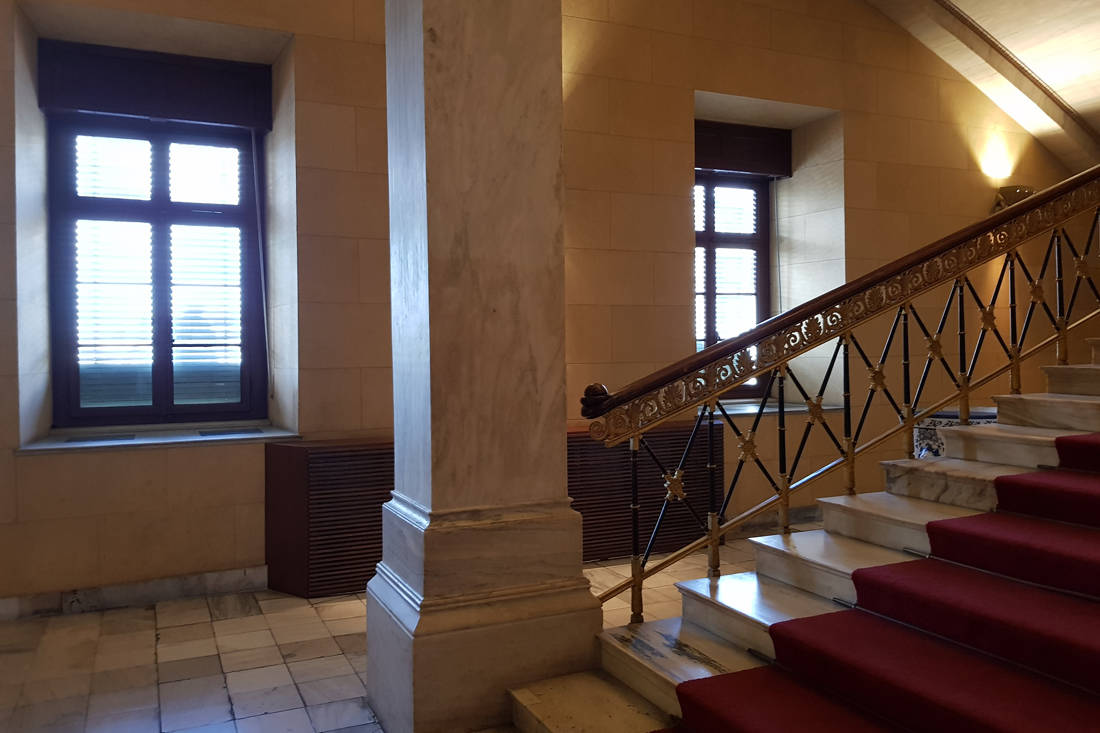
We refer to the fifth window of the lower row if you count them from the left (or the third on the left if you start counting from the main gate on the west side of the building). No, it is not haunted, nor is it associated with legends and traditions. The reason it stays permanently closed is much simpler. This is a "blind" window made only for reasons of optical symmetry. From behind there is no room, but just a wall.
What is behind it
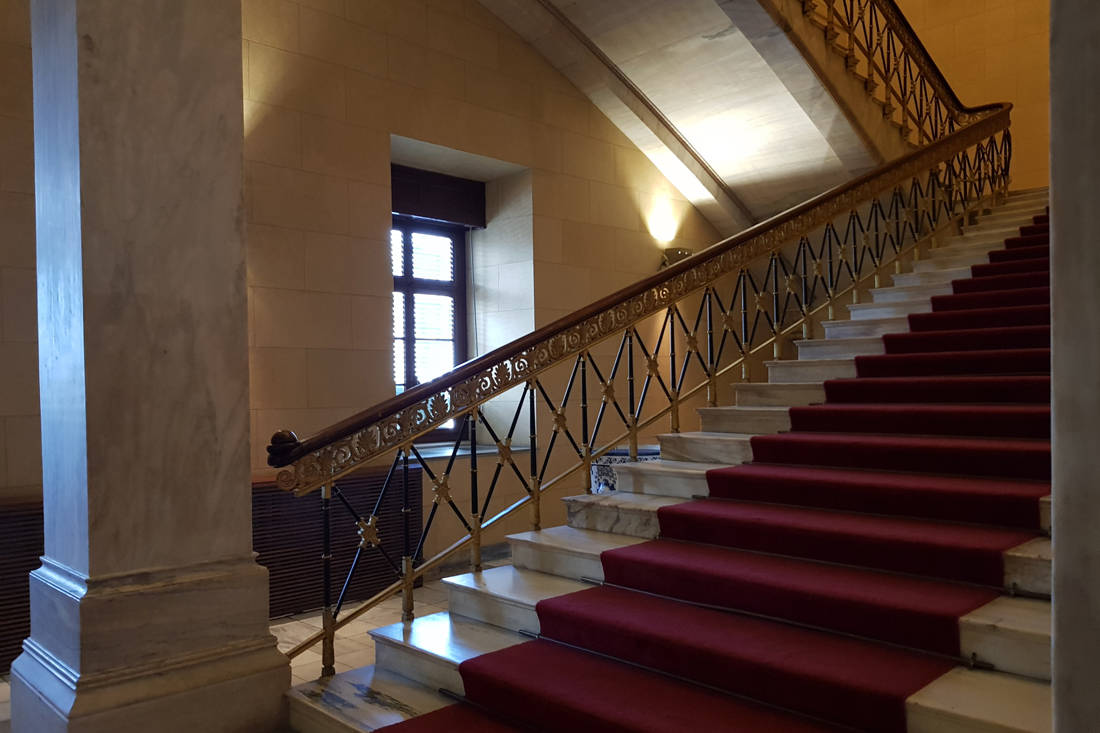
As it reveals today and photographically newsbeast.gr just behind is the wall of the elegant internal marble staircase that connects the peristyle of the ground floor with the former rooms of Trophies and Supporters that today are united and constitute the large hall "Eleftherios Venizelos" of the first floor, which usually hosts open exhibitions the public and school students.
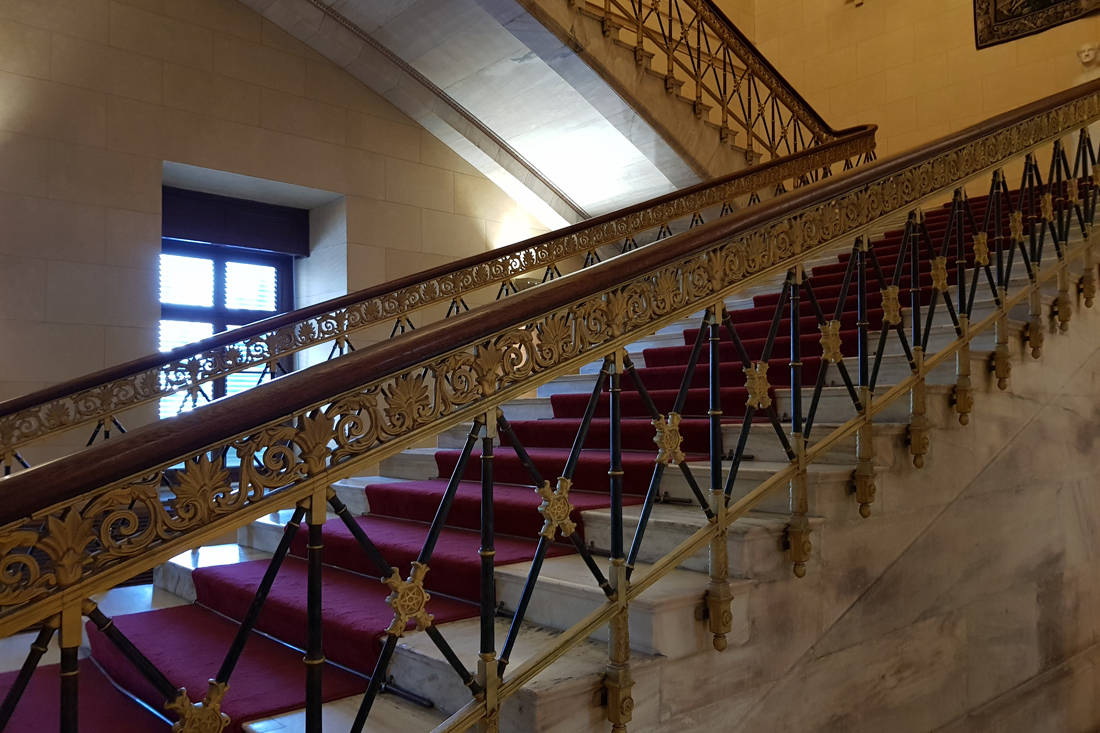
The staircase that the visitor climbs on the permanently unfolded red carpet is one of the few elements that have remained unchanged in the building since it was used as the palace of King Otto I and was built by the Bavarian court architect Friedrich von Gärtner. From the photos it becomes obvious that one sees the first two inside windows to the left of the entrance, but not the third that falls on the turn made by the stairs.
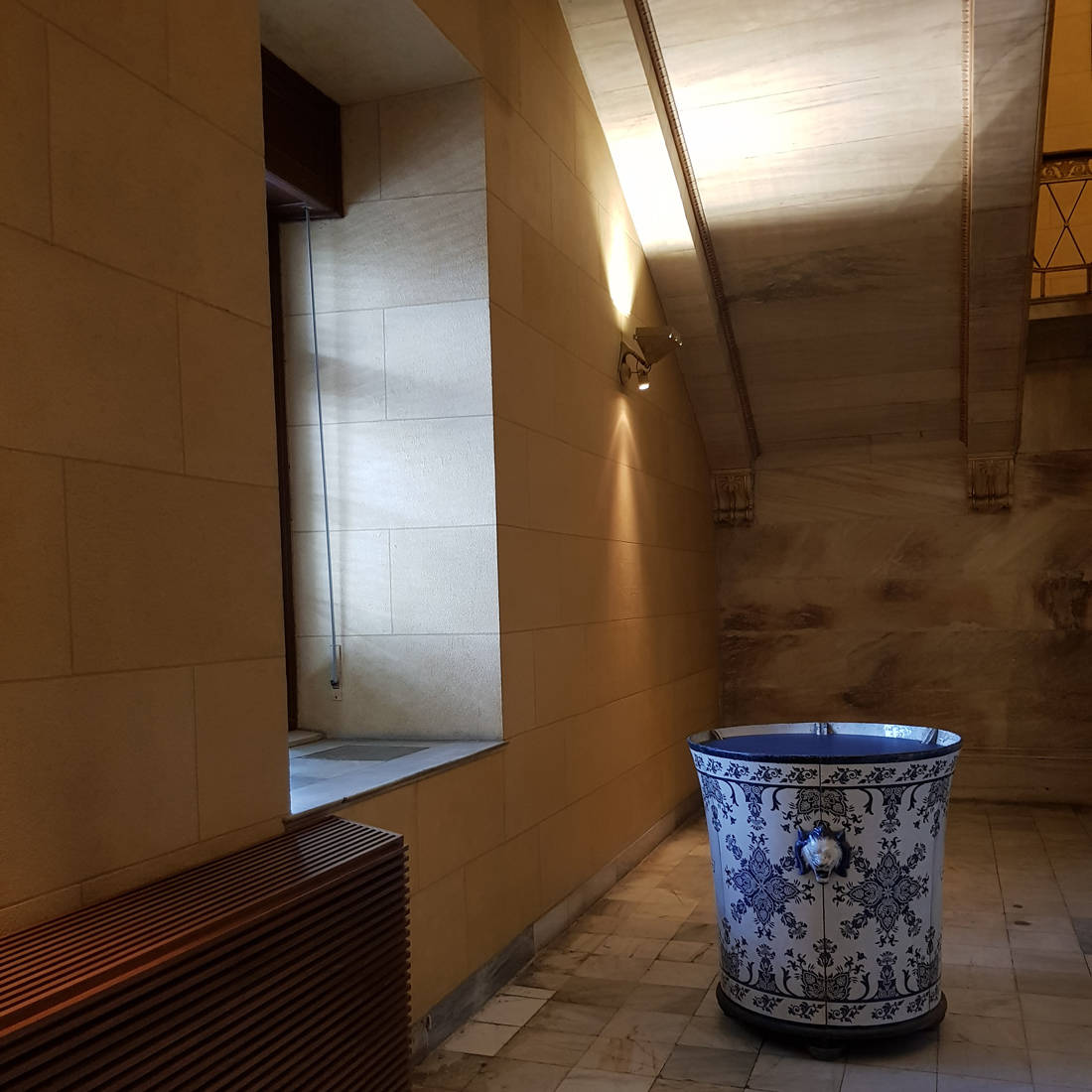
The window of the royal office
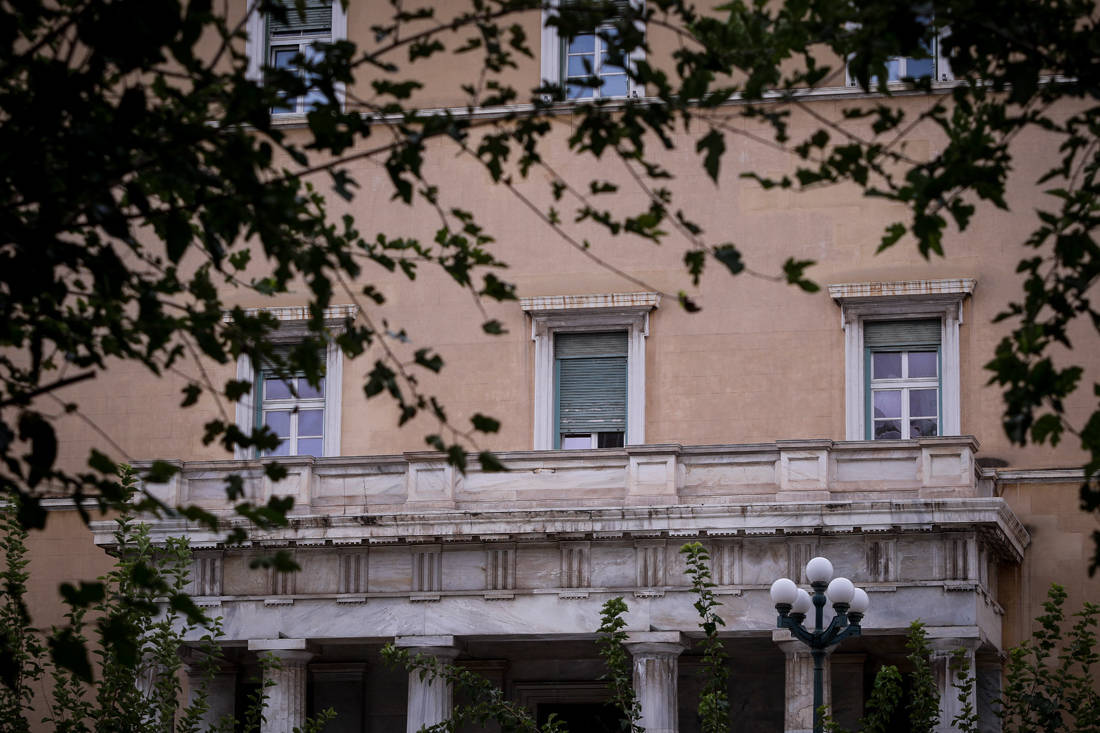
Another window of great interest is a quarter of the bottom row (counting from the right), again on the center side above the monument to the Unknown Soldier. So there, in front of this window, one of the most important pages of modern political history was written on the morning of September 3, 1843.
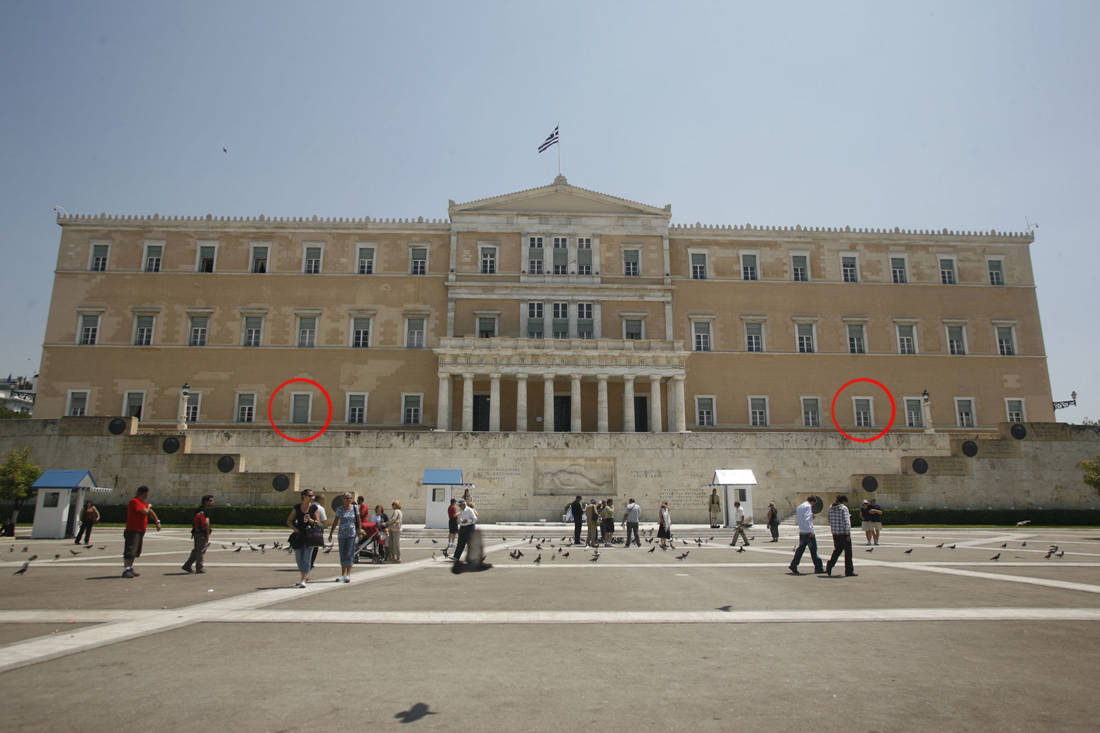
The military commander of the capital, Colonel Dimitrios Kallergis, accompanied by members of the Athens Guard, arrives on horseback in the large square of the newly built palace (which will later be named Syntagma Square) demanding from the 28-year-old king Otto I the concession of a Constitution, for the first time in Greece.
Constitution here and now
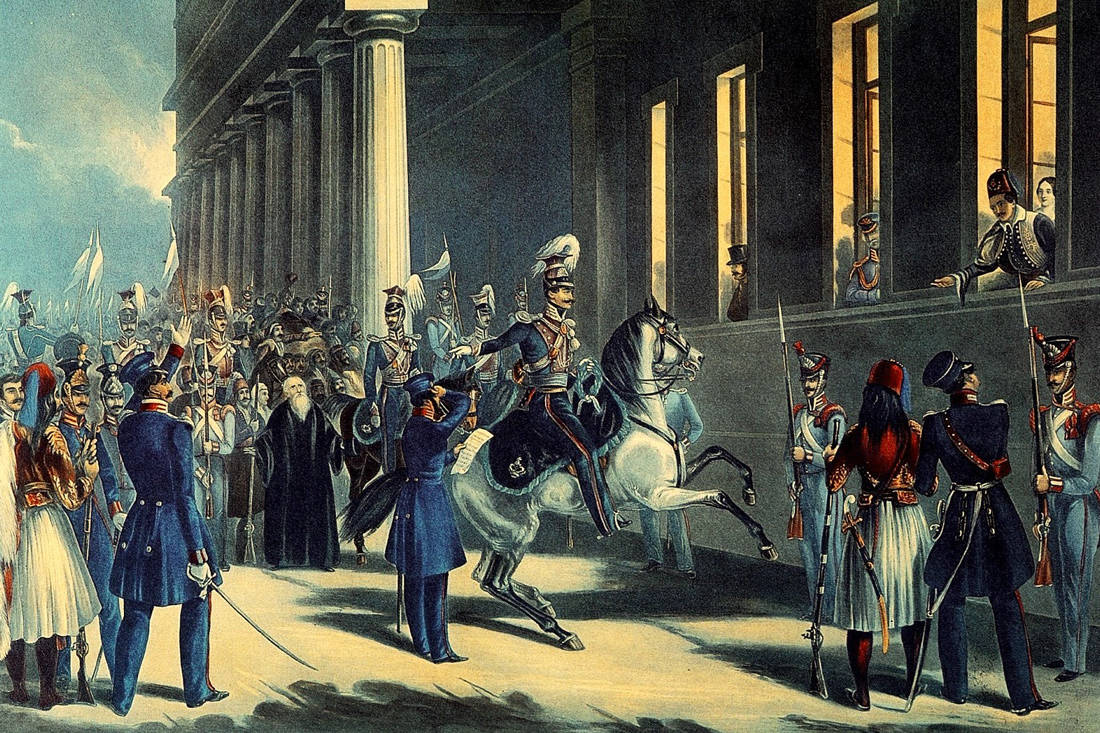
"The king was working in his private office at the time when he heard the applause. The queen woke up frightened and ran with her hair untied near her husband. Realizing the crowd, she returned to her bedroom, got dressed quickly and turned to him again. THE Othonas "Under the rage, he was talking to his supporters," writes Costas Paparrigopoulos in the History of the Greek Nation. He decides to go to that window to find out exactly what is going on. He sees Kallergis on horseback, who informs him that the people and the army are asking for a Constitution.
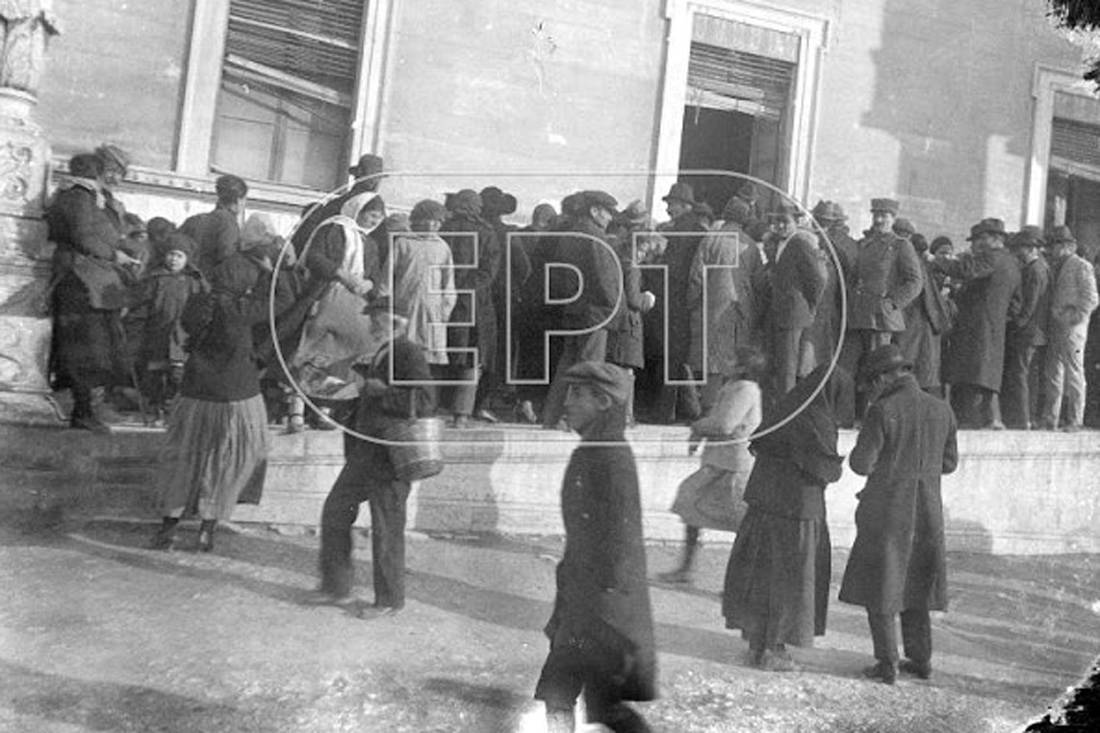
In Othon's order to be dissolved with the commitment to take care of the matter, the military commander replies that this will not happen unless the monarch and the Council of State do not take the coveted decision immediately. During the night, the S.T.E. The king has no other choice and gives up. He signs a decree that stipulates that within 30 days the national assembly would finally draft a Constitution. It was the night that Greece passed from the absolute, to the constitutional monarchy.
* George Sarris is a journalist - member of ESIEA, honored by the President of the Republic with the Ath. Botsis Award for the objective and complete presentation of historical political issues.
